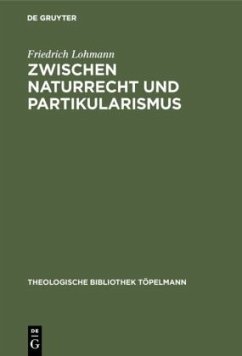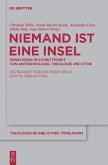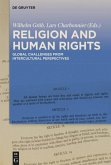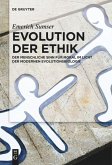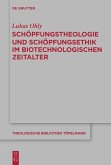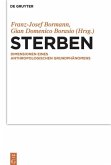For years now, the question of the universality of human rights has been the subject of controversial discussion between the various cultures. The present study examines whether ethical norms, e.g. human rights, can be justified universally or only particularly (for the values of a particular community). To achieve clarification, contributions are analysed from Protestantism (inter alia W. Herrmann, E. Troeltsch, K. Barth and T. Rendtorff) and from philosophy (the tradition of natural law, R. Alexy, O. Höffe). The author concludes that ethical norms are always grounded in a particular view of humanity - e.g. the christian view, but at the same time aim for a universal plausibility which is to be established in the discourse of world views.
Die Universalität der Menschenrechte wird seit Jahren zwischen den verschiedenen Kulturkreisen kontrovers diskutiert. Die vorliegende Untersuchung geht der Frage nach, ob ethische Normen, wie z.B. die Menschenrechte, universal oder nur partikular (für eine bestimmte Wertgemeinschaft) begründbar sind. Zur Klärung werden Beiträge aus dem Protestantismus (u.a. W. Herrmann, E. Troeltsch, K. Barth und T. Rendtorff) und der Philosophie (Naturrechtstradition, R. Alexy, O. Höffe) analysiert. Der Verfasser kommt zu dem Ergebnis, daß ethische Normen immer in einem bestimmten, etwa dem christlichen, Menschenbild fundiert sind, aber zugleich auf universale, im Weltanschauungsdiskurs zu erweisende Plausibilität zielen.
Die Universalität der Menschenrechte wird seit Jahren zwischen den verschiedenen Kulturkreisen kontrovers diskutiert. Die vorliegende Untersuchung geht der Frage nach, ob ethische Normen, wie z.B. die Menschenrechte, universal oder nur partikular (für eine bestimmte Wertgemeinschaft) begründbar sind. Zur Klärung werden Beiträge aus dem Protestantismus (u.a. W. Herrmann, E. Troeltsch, K. Barth und T. Rendtorff) und der Philosophie (Naturrechtstradition, R. Alexy, O. Höffe) analysiert. Der Verfasser kommt zu dem Ergebnis, daß ethische Normen immer in einem bestimmten, etwa dem christlichen, Menschenbild fundiert sind, aber zugleich auf universale, im Weltanschauungsdiskurs zu erweisende Plausibilität zielen.

